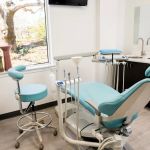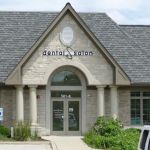Common Oral Diseases in the Elderly: Understanding and Prevention
- - Introduction
- - Why Oral Health Matters in the Elderly
- - Common Oral Diseases in the Elderly
- - The Impact of Poor Oral Health on Overall Well-being
- - Prevention and Care: How to Maintain Good Oral Health
- - Real-Life Examples of Elderly Oral Health Challenges
- - Conclusion







 White Hill Dental4.0 (153 review)
White Hill Dental4.0 (153 review) Fresh Smiles4.0 (132 review)
Fresh Smiles4.0 (132 review) Lifetime Family Dental PLLC0.0 (0 review)
Lifetime Family Dental PLLC0.0 (0 review) McCall Family Dentistry5.0 (718 review)
McCall Family Dentistry5.0 (718 review) Dental Salon Schaumburg4.0 (805 review)
Dental Salon Schaumburg4.0 (805 review) North Atlanta Family Dentistry4.0 (482 review)
North Atlanta Family Dentistry4.0 (482 review) The Importance of Oral Health Education During Pregnancy for a Healthy Pregnancy
The Importance of Oral Health Education During Pregnancy for a Healthy Pregnancy Best Tips for Brushing Your Teeth Properly for Healthy Gums: Essential Techniques for Oral Health
Best Tips for Brushing Your Teeth Properly for Healthy Gums: Essential Techniques for Oral Health Why Skipping Dental Checkups Can Lead to Bigger Oral Health Problems
Why Skipping Dental Checkups Can Lead to Bigger Oral Health Problems Advantages of Porcelain Dental Restorations
Advantages of Porcelain Dental Restorations How Can Diabetes Cause Tooth and Gum Problems? Preventing and Managing Oral Health Issues
How Can Diabetes Cause Tooth and Gum Problems? Preventing and Managing Oral Health Issues Healthy Habits for Promoting Good Oral Health and Hygiene: Tips for a Healthy Smile
Healthy Habits for Promoting Good Oral Health and Hygiene: Tips for a Healthy Smile